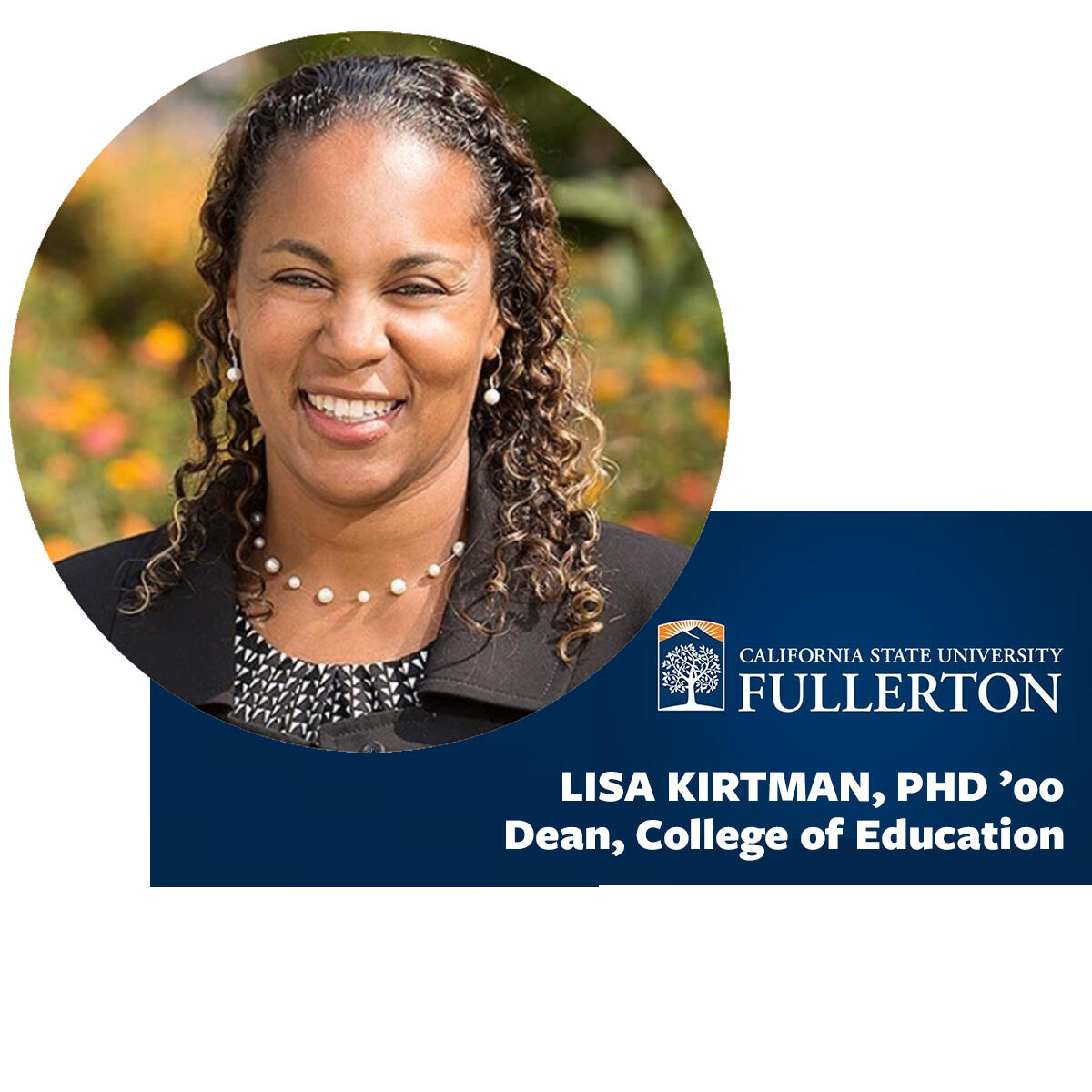
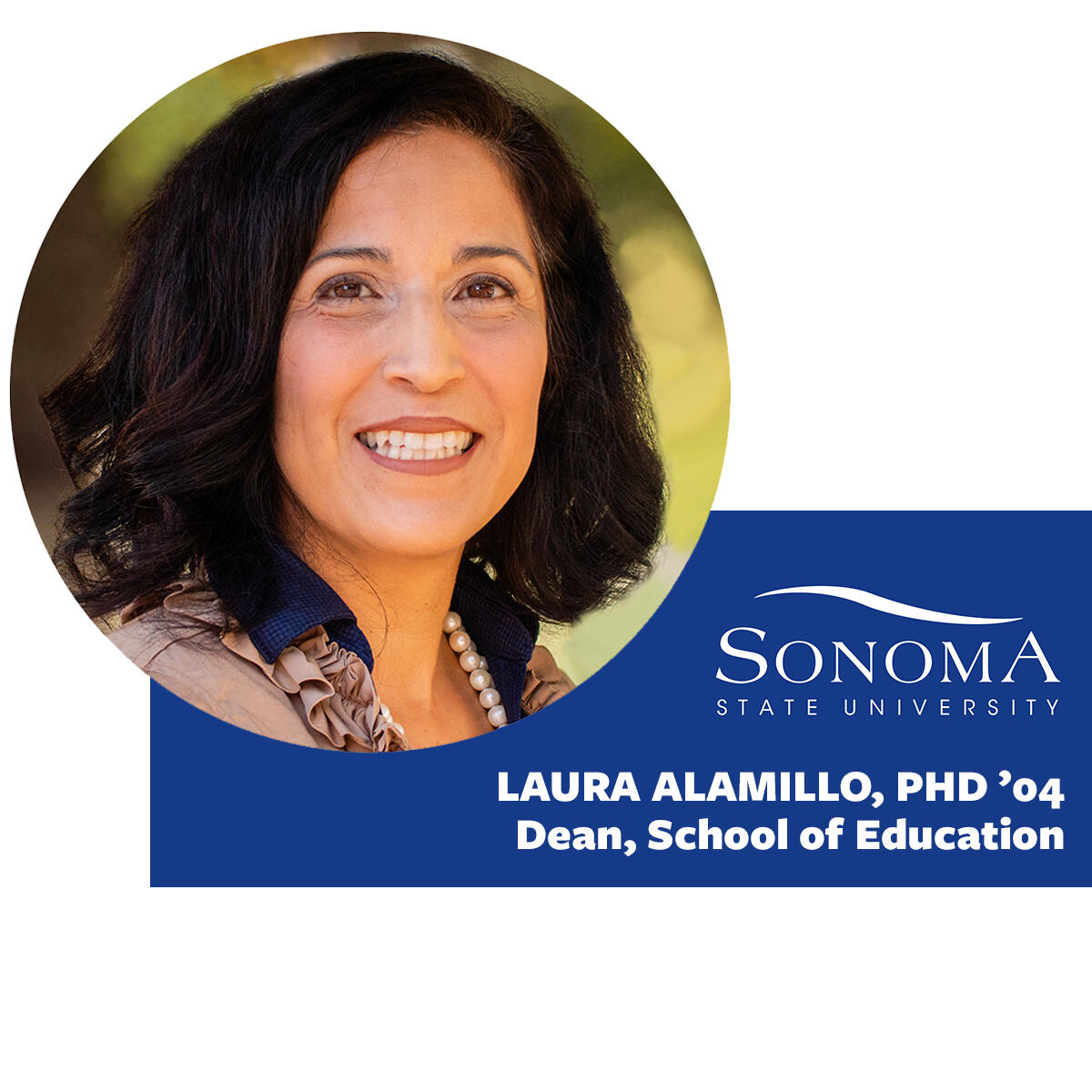
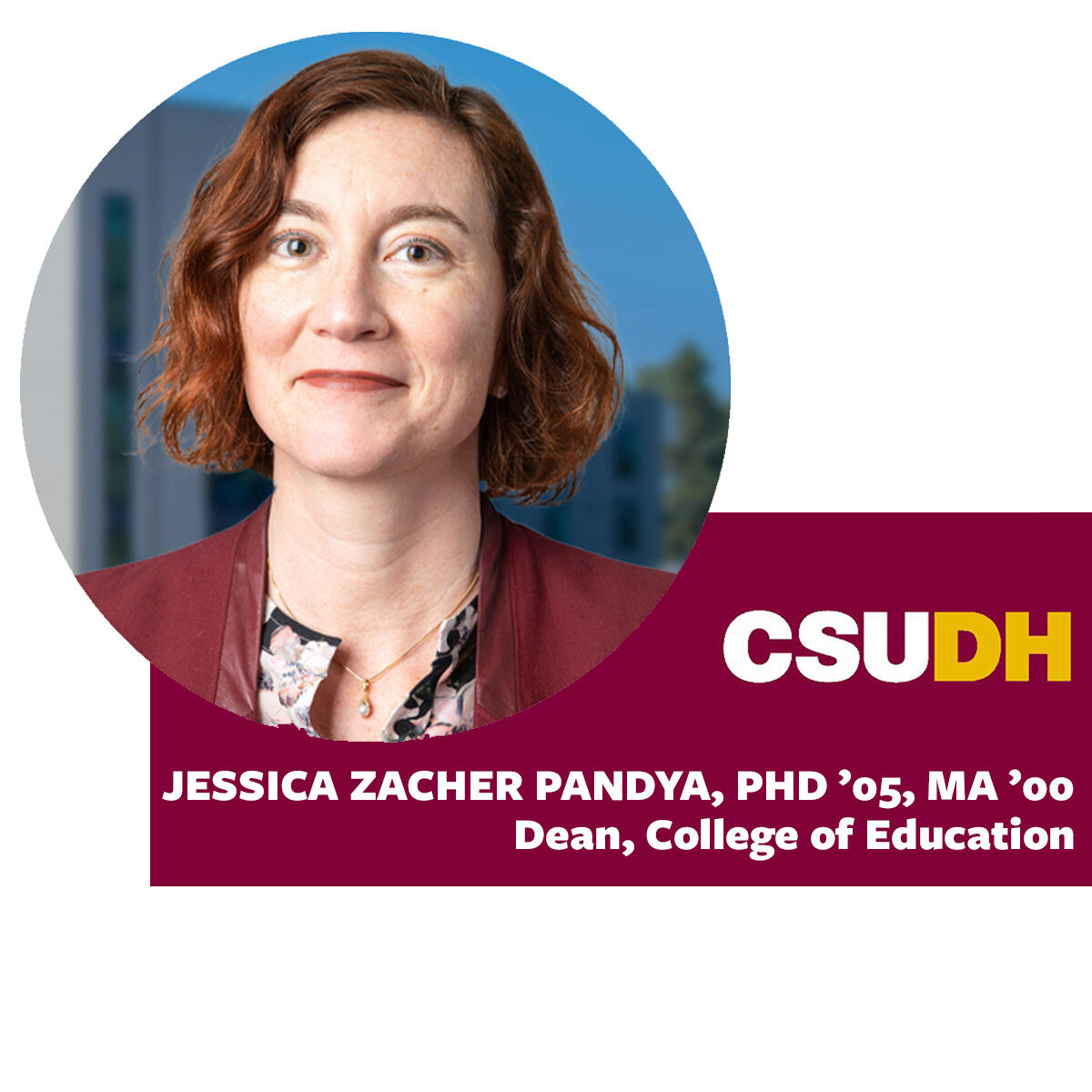
What's your vision for your college/school of education?
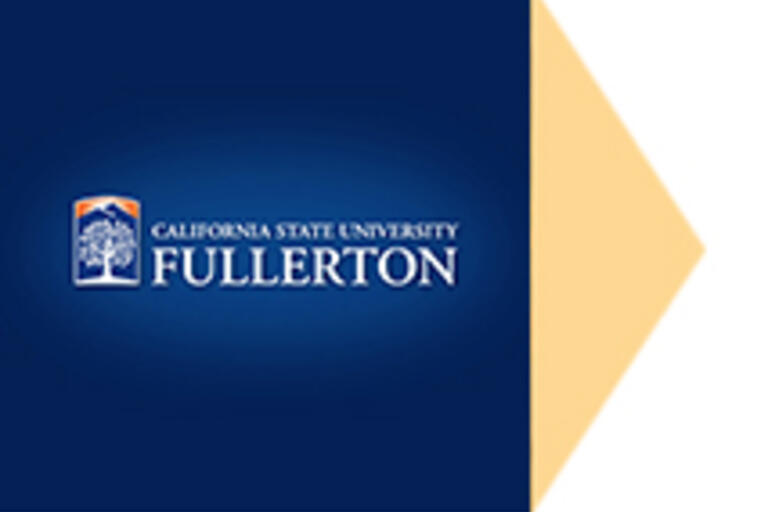
Lisa Kirtman
At the College of Education, we understand the power of education. It’s why we take seriously our responsibility to train qualified, compassionate, and culturally competent teachers at every level of academia. It’s why we stand for Just, Equitable, and Inclusive Education. And why our mission is to close the opportunity gap. How we leverage our power is especially important during these unprecedented times. The College of Education seeks to produce Educators who are committed to looking to transform students into the best version of themselves.
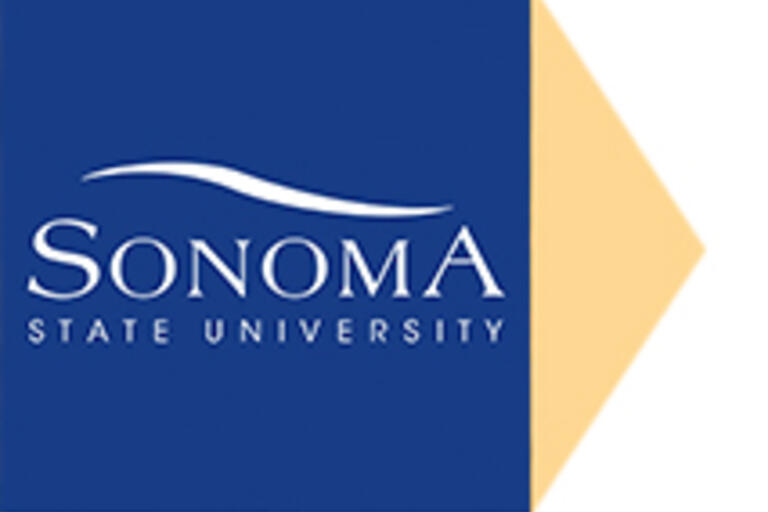
Laura Alamillo
I am fortunate to lead a school with faculty and staff who share a similar vision. Our vision is to prepare leaders who can advance justice in schools and communities by means of education. We believe working closely with our partnership schools allows for open communication, critical discussions and provides us a sense that what we are doing meets the needs of their community. We can't do this work without the support from our community. In the past year, I have met with our partnership districts.
Obviously the pandemic has produced more challenges in higher education and for a school of education we are also having to figure out how to prepare teachers for this upcoming year. The teachers will not be the same kind of teachers produced two years ago. This re-envisioning can only happen with constant conversations with our area schools.
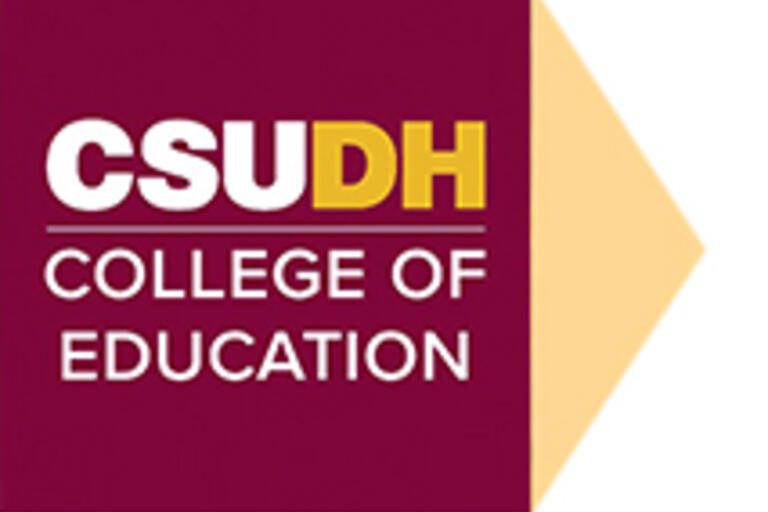
Jessica Zacher Pandya
My vision for the College of Education is to be the place in Southern California where you go if you want to get a teaching credential, if you want to support teachers of color. If you're looking for teachers of color, that's where they're coming from. Dominguez Hills is the place where we are educating teachers and school counselors and school leaders. We're the place you go if you want equity minded, forward thinking educators to work in communities of color.
What does it mean to lead in this era of a worldwide pandemic, and racial reckoning in the United States?
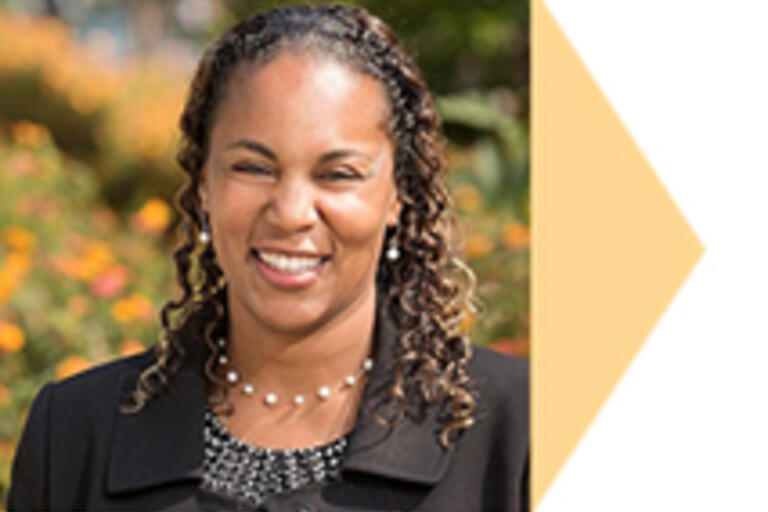
Lisa Kirtman
After 5 years I realized that I am still learning, but I still believe so strongly in the College of Education and the work we do for children that I am still excited about my work. This has been a very hard year and a half. Obviously, nothing like the prior years. But this year has helped us to continue our focus on Just, Equitable and Inclusive Education. We have been working on this concept even before the murder of George Floyd, but injustices that we are currently experiencing has given us a push to work harder.
During this year we have continue to work on professional development that focuses on Anti-racist teaching as well as examining personal and structural bias. We have continued to work to remove barrier to admissions, and improve our hiring practice to recruit more faculty of color. In addition, we have learned a lot about what we can and cannot do virtually. We are thinking from a pedagogical standpoint and an access standpoint, what classes can we keep online? What meetings can we have online to avoid travel and reduce costs? For example, we are altering aspects of student teaching to include some virtual observation with great teachers who are strong in anti-racist teaching but too far for us our student to travel.
Finally, I think we have learned the values of healing, self-care and human contact. We are trying to think about these areas as we return to campus. We are trying to figure out how to learn from this very difficult period. How we can be better.
Although I am tired emotionally I am also excited to see what there is to come.
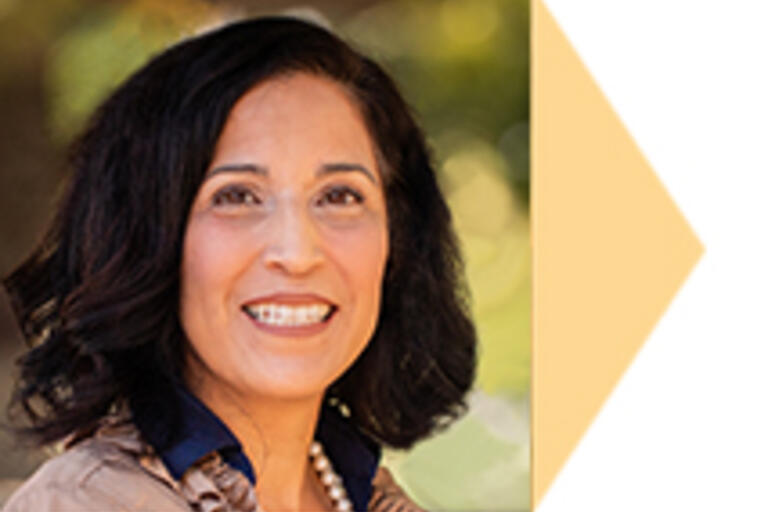
Laura Alamillo
The racial crisis and layered on with a pandemic has only brought out a more complex level of inequities in schools.
I am reminded of the situation in the Central Valley when the pandemic started. There were many children who did not have stable internet and I remember seeing a story of two young, Latinx sisters sitting outside of a local fast food place trying to connect to class every morning. Everyone gave accolades to these young girls for their resilience however, looking more closely, the opportunity gaps became much more apparent. The schools made great strides in looking more closely at expectations and these apparent gaps that became very clear last year.
To lead in this current context means that we have to lead with a lens of equity and inclusivity. We can't assume that all children or families have the same access. My role as Dean means I'm an advocate for children, especially now. The SSU students have younger siblings who want to attend college as well. My role is to ensure these pathways are accessible and free of obstacles, especially now. Our curriculum should also reflect the students we serve.
There is so much work to be done in this area. I am hopeful for our future though, I have to be.
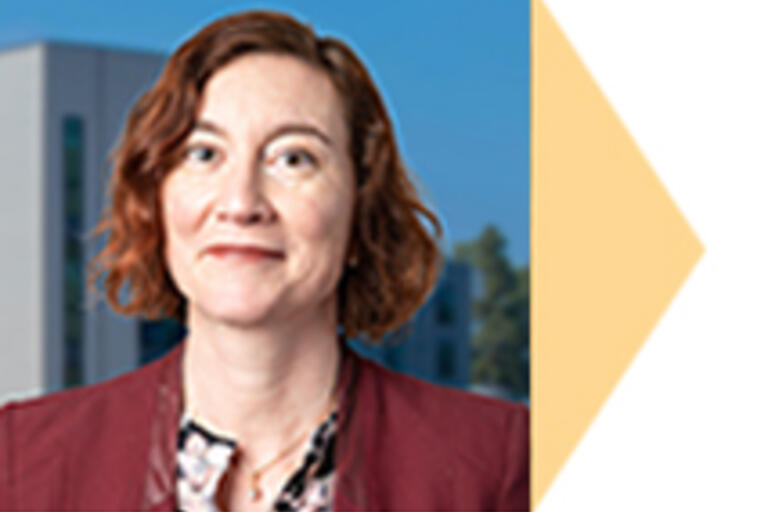
Jessica Zacher Pandya
I’m very aware of my whiteness, and the privileges and responsibilities I have as a white woman in higher ed and in Colleges of Education. Each CSU campus is quite distinct; one of the distinctions of DH is that it is a majority minority faculty, unlike some other CSUs. I like working in diverse environments and I don't want to work with people who are all like me or look like me—and there is lots of work for all of us at Dominguez Hills to do in the service of racial equity.
We have many African-American students, first-generation students, and a growing Samoan student population. Our Education faculty have spent the past two years creating the Justice and Equity Collaborative. They were working on equity issues pre-COVID, before the murder of George Floyd. That was one of the things that intrigued me as a Dean interviewee because they were already working on justice and equity at the faculty level. They were helping programs do equity audits of their coursework, as well as theoretical visioning. I've been here just four weeks, so I'm asking the collaborative, how the college can support the work and support them.
There is a vision and a mission that the collaborative created and my job is to turn it into a strategic plan, saying this is what we value, here’s what we’re going to do about it.
I would also say that the faculty, students and staff of Dominguez Hills have suffered a lot during COVID. Lots and lots of people lost a close family member, or were sick. Our area has a slightly lower vaccination rate than other parts of L.A. I think people are exhausted. You can't just keep doing and doing and doing, so we're going to take a year and also just recover a little.
How did your experience at the GSE prepared you for your current role, and what theories and practices do you still use today?
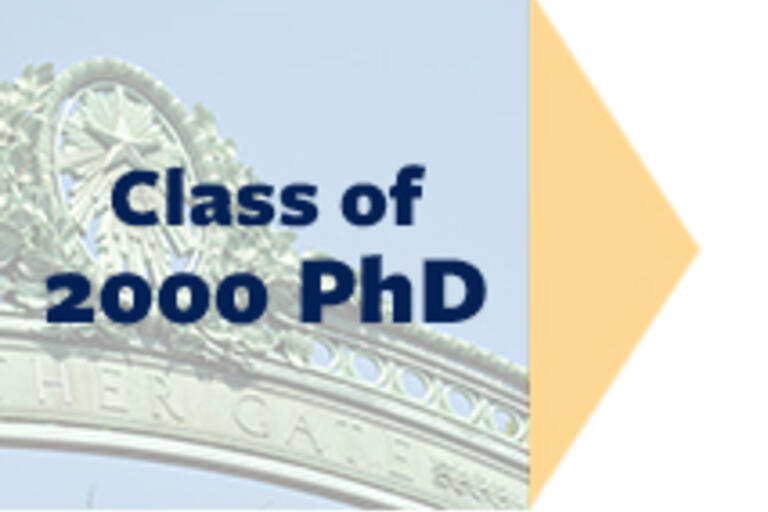
Lisa Kirtman
Berkeley’s GSE is the main reason that I became a professor of teacher education. Through my dissertation work with Dr. Judith Warren Little, I was able to study the impact of the teacher on classroom. My passion for teacher education grew out of that work. My class with Dr. Pedro Noguera in urban education helped me more fully understand the inequities in schools, and my work with my outside advisor, Dr. Raka Ray, helped me understand social movements, inequities in society and how to create change.
I also learned the importance of studying and analyzing data. I could talk about specific theories and theorists but I think the most important things that I learned were critical thinking and confidence in my ability. I truly believe that I can figure out most problems. I know it is going to take time, and I know it will not always be easy but my PhD program gave me the confidence to believe that I will succeed.

Laura Alamillo
Many of our students at SSU are First Generation college-going students. GSE prepared me to better understand their experiences in schools by looking at their own assets, what children and families bring to schools. I will never forget when Dr. Eugene Garcia introduced us to Luis Moll's Funds of Knowledge. Moll's framework helped me better understand not only my experiences in my own community but it provided me with a tool to share with future teachers.
I was tired of hearing about dismal statistics about underserved communities. I knew it was much more complex. Moll gave me a sense of hope. I still use Moll's theory to better explain what teachers observe in homes and communities.
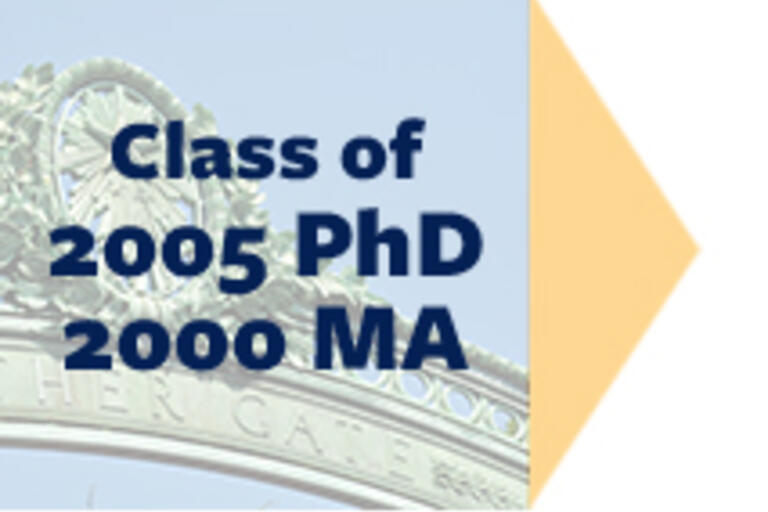
Jessica Zacher Pandya
My adviser Anne Haas Dyson when I was first at Berkeley taught me to really revel in the joy of children and children's writing and communication. Anne was endlessly fascinated with how kids make sense of the world. And I mean, I probably was, too. She reminded me that that was a professional thing you could do: you could spend your adult life not only listening to children and watching them and seeing what they write and say, but that you could be theoretically rigorous and grounded, and also feel the joy in children's worlds.
Glynda Hull showed me how to be respectful of adults and adult learners. In my later work, there are echoes of some of the adolescent work, but Glynda taught me to respect where people come from and to listen very carefully to what community organizations need so we're not just doing research to do it; we're not just doing it about them, but we're doing it with them.
Jabari Mahiri taught me, more than anybody else, how to talk about race openly. And this is, of course, something I do all the time now in my daily job. So how to talk about it, what difference where we come from means; and how being who we are affects how we see the world.
I worked with David Pearson as a researcher and learned a lot from him too, and he has a great respect for teachers. He had a much bigger sense of this larger literacy-oriented professional development, what it should look like, how it should be.
Also I worked with the late Allan Pred, who was in the geography department. He taught me to think outside of my theoretical comfort zone and he really pushed me. He would say, “What do all of these literacy theories mean in relation to these larger theoretical questions of how do these things fit together? What's your bigger argument? What are you saying that nobody has seen before?"
Intellectual rigor is a good thing to have as a dean, so you don't sit around and say, “Oh, that's a good idea.” But you say, “how is this project going to help further our work here?”
Read the full interviews.*
* Interviews are edited for clarity and length.